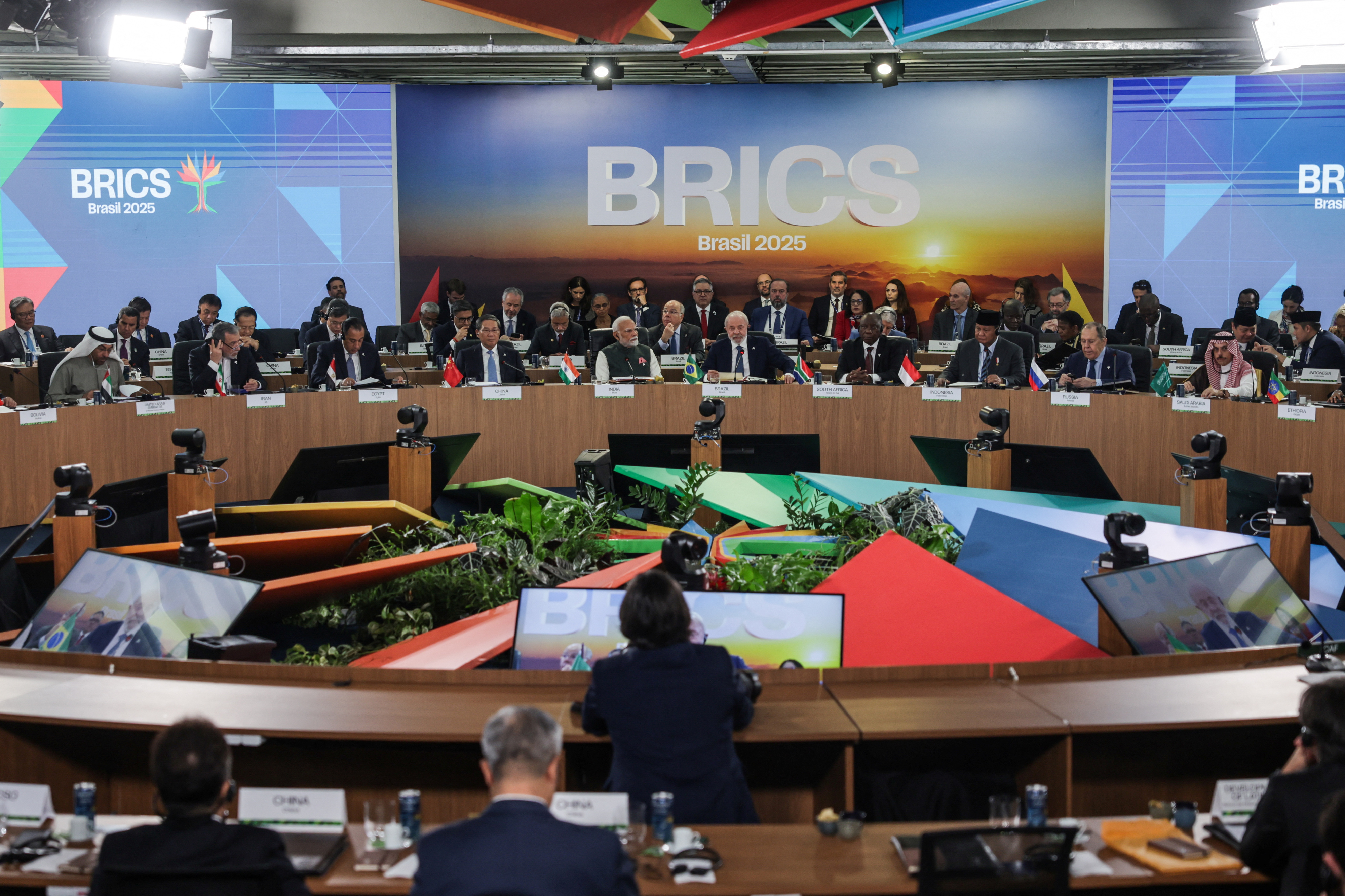Jul 23, 2025
On July 6–7, Brazil hosted the seventeenth annual BRICS summit in Rio de Janeiro. The program included discussions on global health, development, climate change, the governing of artificial intelligence, trade, and the structure of the institution itself. Four Council of Councils member institutes comment on the summit and the impact of the recent expansion of the bloc.
For more BRICS analysis by the Council of Councils, click here to access The President's Inbox podcast.







